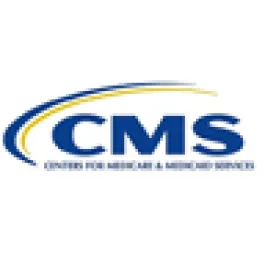On March 1, 2016, the U.S. Department of Health and Human Services Centers for Medicare & Medicaid Services (CMS) published a proposed rule (Proposed Rule) entitled “Medicare, Medicaid, and Children’s Health Insurance Programs; Program Integrity Enhancements to the Provider Enrollment Process”. The Proposed Rule addresses Medicare, Medicaid and Children’s Health Insurance Program (CHIP) enrollment and revalidation reporting requirements, as well as expanded CMS authority intended to increase program integrity through the Medicare enrollment process. CMS is accepting public comments on the Proposed Rule until May 1, 2016.
Background
In response to concerns that certain providers and suppliers were able to evade federal health care program integrity provisions by changing names or establishing complex entity relationships, the Affordable Care Act incorporated additional requirements in Section 1866(j)(5) of the Social Security Act for disclosure of certain information at enrollment and revalidation intended to identify such relationships before enrolling and making payments to entities that would not otherwise be eligible for enrollment. The Proposed Rule seeks to implement the requirements of Section 1866(j)(5), as well as provide CMS with additional authority related to denial or revocation of Medicare enrollment and imposition and extension of Medicare reenrollment bars.
The Proposed Rule
Disclosure of Affiliations and Disclosable Events
Under the Proposed Rule, CMS intends to implement the disclosure requirements under Section 1866(j)(5) that require providers and suppliers seeking Medicare enrollment or revalidation to disclose current or past (within the last five years) affiliations with individuals and entities that have or have had a “disclosable event”, including: (1) any current uncollected debt to Medicare, Medicaid, or CHIP (regardless of the amount or status of appeal or repayment terms); (2) any prior or current payment suspension under a federal health program; (3) any exclusion from participation in Medicare, Medicaid, or CHIP (including exclusions under appeal); or (4) any denial, revocation or termination of Medicare, Medicaid or CHIP enrollment (regardless of the reason and including decisions under appeal). CMS proposes to define “affiliation” to include:
-
A 5 percent or greater direct or indirect ownership interest in another organization;
-
A general or limited partnership interest in an entity, regardless of the ownership interest;
-
The exercise of operational or managerial control, or directly or indirectly conducting the day-to-day operations of another organization;
-
Acting as an officer or director of a corporation; and
-
Any reassignment relationship under 42 CFR § 424.80.
The Proposed Rule defines “uncollected debt” to include certain overpayments and civil monetary penalties and assessments. As proposed, enrollment applicants also must disclose if any of their owners or managing employees or organizations has or had an affiliation involving a disclosable event.
Notably, as proposed, applicants must report disclosable affiliations regardless of whether the affiliated provider or supplier was enrolled in a federal health care program during the term of the affiliation and regardless of when the disclosable event occurred. CMS is seeking comments as to whether it should apply a lookback period for disclosable events (as it proposed in the case of a five-year lookback for affiliations), and if so, how long that period should be. A provider or supplier must also report changes to existing affiliations and information regarding new affiliations.
Increased Authority to Revoke or Deny Medicare Enrollment
Under the Proposed Rule, CMS may deny or revoke a provider’s or supplier’s enrollment if the provider or supplier fails to fully and completely disclose affiliations with disclosable events (as discussed above), or if CMS determines any of the disclosed affiliations poses an undue risk of fraud, waste or abuse. In evaluating the risk of a disclosed affiliation, CMS will consider the following factors:
-
The duration of the affiliation;
-
Whether the affiliation still exists or when it ended;
-
The extent of the affiliation (e.g., percent ownership);
-
The reason the affiliation was terminated;
-
The type of disclosable event;
-
When the disclosable event occurred;
-
Whether the affiliation existed at that time; and
-
Any other evidence CMS deems relevant.
In the case of uncollected debt, CMS will evaluate the amount, steps (if any) toward repayment and to whom the debt is owed. In the case of denials, revocations, terminations, exclusions or payment suspensions, CMS will evaluate the reason for the action.
CMS also proposes to expand its authority to deny and/or revoke a provider’s or supplier’s Medicare enrollment in the following circumstances:
-
If CMS determines the provider’s or supplier’s billing privileges are currently revoked under a different name, numerical identifier, or business identity, CMS may revoke or deny the provider’s or supplier’s enrollment. In its investigation, CMS would consider the degree of commonality among the owning and managing employees and organizations; geographic location; provider or supplier type; business structure; and any other evidence indicating that the two parties are similar.
-
If a provider or supplier bills Medicare for services performed at or items furnished from a location it knew or should have known did not comply with the Medicare enrollment requirements, CMS may revoke the provider’s or supplier’s enrollment (including all of the provider’s or supplier’s locations, regardless of whether they are part of the same enrollment). As proposed, CMS could revoke multiple provider and supplier locations even if the sites have different numerical identifiers, legal business names or ownership as long as evidence suggests that they are effectively under the control of similar parties.
-
If CMS determines a physician or eligible professional has a pattern or practice of ordering, certifying, referring, or prescribing Medicare Part A or B services, items or drugs that are abusive, represents a threat to the health and safety of Medicare beneficiaries, or otherwise fails to meet Medicare requirements, CMS may revoke the physician or eligible professional’s enrollment. As proposed, CMS will consider the following factors in making its determination, whether: (1) the diagnoses supports the orders, certifications, referrals, or prescriptions at issue; (2) there are instances where items or drugs ordered, certified, referred, or prescribed could not have occurred (e.g., the patient was deceased); (3) any prior disciplinary action has been taken against the individual; (4) there was any prior restriction, suspension, or revocation of an individual’s ability to provide health care or participate in an insurance program; (5) the length of time the pattern has continued; (6) the length of time the physician or eligible professional has been enrolled in Medicare; and (7) malpractice suits filed against the professional. CMS will also consider any other information it deems relevant.
-
If a provider or supplier has an existing debt that CMS refers to the Department of the Treasury, CMS may revoke the provider’s or supplier’s enrollment.
-
If an enrolled individual or entity fails to report changes to certain enrollment information (e.g., changes of location or ownership, final adverse actions) within 30 or 90 days, depending on the entity type and information involved, CMS may revoke the provider’s or supplier’s enrollment. In evaluating the failure to report, CMS proposes to consider the following criteria: (1) whether the information was reported; (2) if reported, how belatedly; (3) the materiality of the information; and (4) any other information CMS deems relevant to its evaluation and determination of the revocation.
-
If a provider’s or supplier’s owning or managing employee or organization has been placed under a Medicare or Medicaid payment suspension, CMS may deny the provider’s or supplier’s Medicare enrollment. This proposal expands CMS’ current authority to deny Medicare (not Medicaid) enrollment to provider’s or supplier’s whose current owner, physician or non-physician practitioners are subject to Medicare payment suspensions. As proposed, CMS could apply its expanded authority to any of the provider’s or supplier’s owning or managing employees, to the organization’s current or former names, numerical identifiers or business identities, and to any of the provider’s or supplier’s existing enrollments.
-
If a provider’s or supplier’s license is currently revoked or suspended in a state other than that in which the provider or supplier is enrolling, or if the provider or supplier is currently terminated or suspended from participation in a state Medicaid program or any other federal health care program, CMS may deny the provider’s or supplier’s Medicare enrollment application. In addition, CMS proposes to expand its authority to revoke a provider’s or supplier’s enrollment if the provider or supplier is terminated, revoked or barred from participation in any other federal health care program and the provider or supplier has exhausted all applicable appeal rights.
-
If CMS determines a provider or supplier voluntarily terminated its Medicare enrollment to avoid a revocation, CMS may revoke the provider’s or supplier’s enrollment.
Increased Reenrollment Bar
CMS proposes to lengthen three reenrollment bars. First, CMS proposes to increase the maximum reenrollment bar from three years to 10 years, subject to exceptions where greater bars may be warranted. CMS notes that revocations that typically involve a one-year reenrollment bar would not necessarily result in a longer revocation period under the Proposed Rule. CMS indicates that the extended reenrollment bars would be limited to “egregious cases of fraudulent, dishonest or abusive behavior.”
Second, CMS proposes to increase a provider’s or supplier’s imposed reenrollment bar by three years (even if it exceeds the proposed 10-year maximum) if CMS determines that the provider or supplier is attempting to circumvent its existing reenrollment bar based on the criteria under Section 1866(f)(5).
Third, CMS proposes to apply a 20-year reenrollment bar to providers and suppliers whose Medicare enrollment is revoked for a second time.
Reapplication Bar
Under the Proposed Rule, CMS would have the authority to impose a reapplication bar of up to three years where a Medicare enrollment application is denied for submission of false or misleading information or where information is omitted in order to obtain enrollment.
Both the reapplication bar, and the reenrollment bars (above) would be applied to the previously enrolled or applicant entity under any current, former or future name, numerical identifier or business identity.
Expansion of Ordering/Certifying Requirements and Maintenance of Documentation
Under the Proposed Rule, CMS would require that in order to order, certify, refer or prescribe any Part A or B service, item or drug, a physician or eligible professional must be enrolled in Medicare or have validly opted-out of the Medicare program. In addition, CMS proposes that a provider or supplier furnishing a Part A or B service, item or drug, and the physician or eligible professional furnishing, ordering, certifying, referring or prescribing a Part A or B service, item or drug must maintain documentation for seven years from the date of service.
Changes to CMS’ Enrollment Moratoria Authority
Under the Proposed Rule, CMS seeks to prohibit providers and suppliers from moving an existing practice location to inside an enrollment moratorium area. In CMS’ view, this effectively establishes an additional site in the moratorium area, which is something the moratorium is designed to prevent. In addition, CMS proposes to expand the exception for active enrollment applications excepted from an imposed moratorium. The current rule excepts only enrollment applications that have been approved by a Medicare contractor but not yet entered into PECOS at the time of the moratorium. As proposed, the exception would include applications that have been received by the Medicare contractor prior to the moratorium being imposed.
New Authority to Reject DMEPOS Sureties
CMS proposes to amend the DMEPOS surety bond requirements to enable CMS to reject any and all surety bonds furnished by a surety which has failed to submit a payment to CMS in accordance with a surety bond required by 42 CFR § 424.57(d). As proposed, if CMS rejects a surety bond, the enrolling or enrolled DMEPOS supplier would have to obtain a new bond from a new surety in order to enroll or maintain its Medicare enrollment. CMS notes that it would reserve the right to reject all of a surety’s existing bonds (even those for suppliers unrelated to the noncompliant bond) if the surety fails to make even one required payment; however, it would consider the circumstances surrounding the surety and its failure to pay before requiring suppliers to obtain new bonds from a different surety or rejecting bonds issued to DMEPOS suppliers by the non-compliant surety.
Changes to Provider and Supplier Reactivation
Under the Proposed Rule, CMS seeks to modify the process for reactivating a provider’s or supplier’s Medicare billing privileges by permitting a provider or supplier to recertify its enrollment information currently on file with Medicare and furnish any missing information as appropriate. As proposed, CMS may require a deactivated provider or supplier submit a new enrollment application before reactivating its billing privileges.
Conclusion
The Proposed Rule would impose significant additional burdens on existing and new Medicare providers and suppliers to identify, evaluate and report certain arrangements and relationships for Medicare enrollment purposes. The reporting requirements, coupled with the revocation and reenrollment bar penalties, may have far-reaching implications for providers and suppliers who are otherwise without fault, but may have unknowingly engaged in arrangements with individuals or organizations that CMS has identified as presenting a risk to federal health care program integrity. Providers and suppliers should review the proposed rule carefully and consider providing comments to CMS.






 />i
/>i

